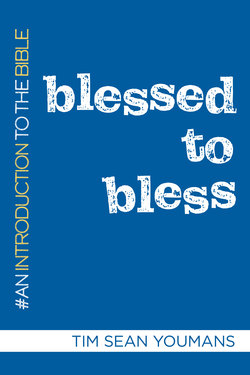Читать книгу Blessed to Bless - Tim Sean Youmans - Страница 12
На сайте Литреса книга снята с продажи.
Оглавление2
The Second Creation Story
Read Genesis 2:4–25 again.
It is this second creation story that most people associate with the Bible’s creation account. God creates a garden and then Adam is created and is asked to subdue the garden, to tend it and take care of it. This was God’s original intention for humanity: to care for the earth. The name Adam comes from a Hebrew word adtham, for dirt or soil. He is created from soil, and then he will grow food from the soil, so there is this profound connection with the earth. Even if you read this story symbolically, human beings, like soil, are made of minerals. We share that in common.
The Garden (or edenic) often refers to a perfect world or a utopia before the “The Fall.” We need to “get back to the Garden.”
Adam becomes lonely. Though God is with him in a special way, God is perhaps too different from Adam. God decides to create a helper for Adam, so God creates animals to keep him company. But this wasn’t suitable. He puts Adam to sleep and takes a rib from his side and forms a woman. Here, the story uses a different word for Adam, ish, which translates man. The woman is called isha, or from man. Later Adam gives her the name Havah, which means “life,” and that name eventually was pronounced Eve.
The number seven, after the seven days of creation, comes to represent a complete cycle, or perfection, and in time becomes designated as the “number of God.” The number six often represents humanity, because in the first creation story human beings were created on the sixth day.
God resting on the seventh day becomes the foundation for the larger concept of the need to rest. Thousands of years later, when God is giving the Hebrew tribe laws to shape their life, he commands they take the seventh day and rest.
The Hebrew word used for breath, ruach, is also used for spirit and wind. So the idea of God breathing into the nostrils of “Soil (or adtham)” eventually was expanded into a double layer of meaning. God’s breath is Spirit.
Lastly, there is some disagreement about the exact nature of the creation accounts. Are they literal historical descriptions or symbolic stories? If you try to track the general chronology of the history back to the time of Adam and Eve (you cannot track it precisely because it is prehistoric, or before written histories), then the earth is approximately 6,000 years old. Scientific method has observed the age of the earth to be about 3.4 billion years old. Which is it?
We will discuss these issues further when reading chapter 4 of Genesis. So put a pin in this topic and we will circle back around.
Questions for Reflection or Discussion
1. In the creation account God rests on the seventh day. Do you or your family take a day of rest? If so, how? If not, why not?
2. Adam is tasked with tilling the garden and caring for the earth. Can you name some ways that you and your family help care for the earth?
